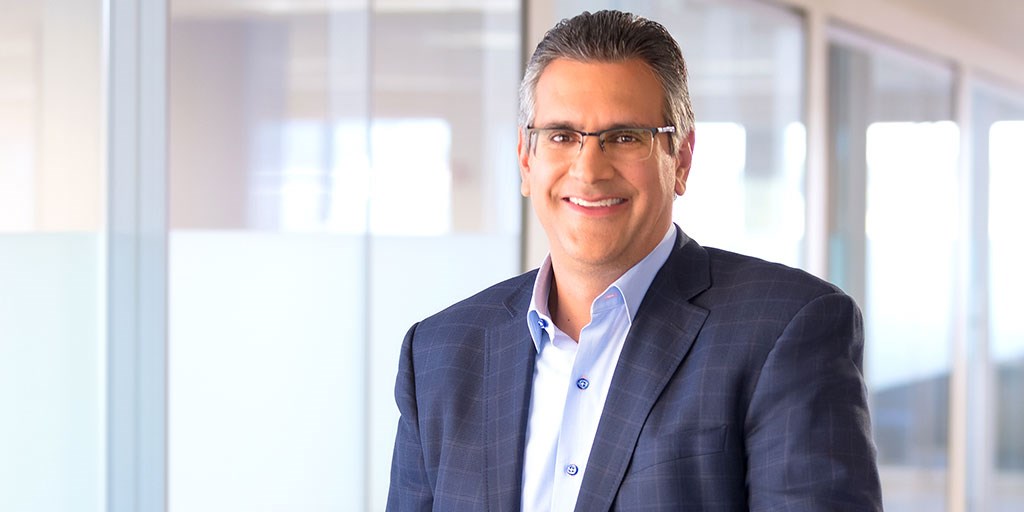More than two decades ago, Michael B. Petras Jr. was involved in a joint venture between his employer, General Electric, and another Fortune 100 company. The experience taught him a valuable lesson that has stuck with him to this day.
“It wasn’t going well,” Petras says. “I learned that GE people at times use the acronym to mean ‘get everything.’ It was early in my career and we tried to ‘get everything’ and it killed the relationship. I was part of that problem. It helped me realize the value of having partnerships and that it’s not always about winning. It’s not about proving you’re right about every point, which is what we were trying to do as a company.”
While GE’s partner wasn’t delivering on what it had committed to in the joint venture, there was a bigger problem.
“Even if they would have delivered, we would have realized we couldn’t deliver on what we committed to either,” Petras says. “Their part was the product, which means we never had to prove if we had the channel capability. It taught me the importance of a balanced relationship in joint ventures and partnerships. This became very important to me as I did joint ventures around the world in China, Japan, Canada and Germany.”
These days, Petras is CEO at Sotera Health, an integrated global health solutions provider. He has 2,800 employees working at more than 62 locations in 13 countries around the world. The company recently rebranded from its former name, Sterigenics International. Sotera is the parent company of Sterigenics, Nelson Labs and Nordion.
Petras knows how to grow a business and he spoke with Smart Business Dealmakers about the best approach to take when negotiating deals with other companies.
What’s the key to being able to step into a difficult situation and make it better?
I’ve gone from the supermarket industry to light bulbs to electrical switch gear to ostomy pouches and catheters at AssuraMed to sterilizing medical devices and pharmaceutical products. The key is having a thirst and a hunger to want to learn all the time. Be able to get in and understand these businesses. You also need to have the right people around you and be able to get them in the right seats. You need to give them direction as to where you are, where you want to go and where you want to be. I spend a ton of time on talent management and performance reviews of all my senior leaders that I’ll then go through with them.
What mentors have helped you grow as a leader?
I’ve worked for unbelievable leaders in my life, including Jack Welch, Jim McNerney at Boeing, Dave Calhoun, who ran Nielsen, and Jeff Immelt from GE. I tried to learn something from each of them, the good and the bad. I had one leader who was a great guy to hang out with, but he was more of a commercial guy, and didn’t know how to run a full P&L. The big mistake he made is he put people around him who were buddies and good guys to hang out with. But they didn’t supplement what he didn’t know. I can remember him getting rid of a technology guy and a manufacturing guy, which were his two weakest spots. It was because he couldn’t get along with these two people. These two people were really what he needed. Jim McNerney was great at driving global accountability. He turned Boeing into a global product company. Jack Welch is so good at the talent and the rigor around that and the evaluation and development of talent. I’ve learned from all of them.
How did you find your career path?
I was an average student in high school and college. My kids laugh at my ACT scores compared to theirs. My kids are smarter than I am on this stuff. I think it’s my eagerness to learn and my willingness to jump in and just work really hard. Your experience shapes you over time. I’m not the smartest guy in the room by any stretch. I’m going against guys that are 10 times smarter than me all the time in business. But I try to work hard, learn, do my homework and be prepared without losing sense of my values.
It’s not all about your education. It’s about who you surround yourself with. Hard work, honesty, your underlying value system. I tell my team all the time when I interview and hire them that I have very high expectations of myself. I don’t ever ask them to do something I wouldn’t be comfortable doing. But that’s going to translate to high expectations for everybody on my team. I want to win. I never want to be satisfied. We’re a market leader and I view it that everybody wants our spot and we can’t let that happen.
How to reach: Sotera Health, soterahealth.com




